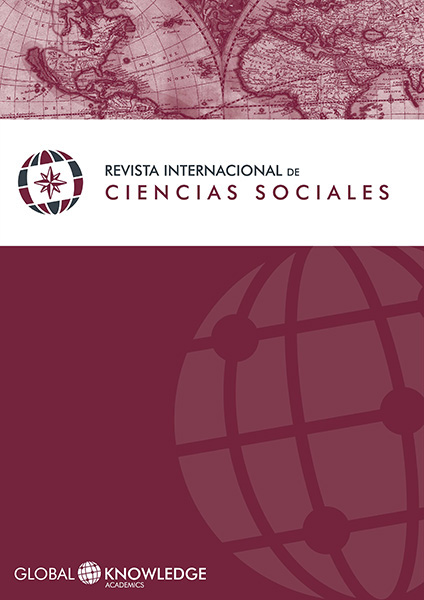Writing in a Reticulated Village: Intervention of the Format on the Content
DOI:
https://doi.org/10.37467/gka-revsocial.v2.1226Keywords:
Language, Social Media, Global Village, Communication Discourse, ScriptureAbstract
Today is some diffuse the naif notion that envision of a village where the daily is resized and is part of a global space, which thanks to technology shortens any distance and in which we all have access to everything. That village exists, true, but today is not that naïve. It has definite patterns, a kind of grid in which you enter and you are let to be guided or are expulsed like it was the most natural way. It seems that when we moved from oral tradition to writing, it will stay forever, that we would live in that Gutenberg galaxy that showed us McLuchan in form of book. The writing is and will continue to exist as a way to shape the thinking, but today is not as free as it seems. What we say is as important as the how and where, and if it is true that the medium is not the message, certainly it is part of it. The concept is the important, no matter the format, says Umberto Eco talking about the book and the controversy surrounding his possible decline in paper. Today information is transferred and according to the container can change the content. But is not only to adapt the format to an specific media, because entering into a new media space is accompanied by a change in the worldview of an event, both of who gives and the one who receives information. The complexity of language is added today to the complexity of the media world, in which a sort of butterfly effect falls on any word or several of them grouped together like a sentence.
Downloads
Global Statistics ℹ️
|
294
Views
|
150
Downloads
|
|
444
Total
|
|
References
Brea, J.L. (2010). Las 3 eras de la imagen . Barcelona: Akal.
Carr, N. (2011). Superficiales ¿Qué está haciendo internet con nuestras mentes?. Madrid: Taurus. DOI: https://doi.org/10.12795/AdMIRA.2011.01.11
Castells, M. (2009). Comunicación y Poder . Madrid: Alianza.
Eco, U. y Carrière J.C. (2010). Nadie acabará con los libros . Caracas: Lumen.
MacLuhan, M. (1998). La galaxia Gutenberg . Barcelona: Círculo de Lectores.
MacLuhan, M y Fiore Q. (1988). El medio es el masaje . Barcelona: Paidós.
MacLuhan, M y Powers, B.R. (2002). La Aldea Global . Barcelona: Gedisa.
Pinker, S. (2007). El mundo de las palabras . Barcelona: Paidós.
Subirats, M. (2011). “La Sociedad del Conocimiento y sus dificultadas de producción”. En: M. Subirats, La Sociedad de la Ignorancia . (pp. 87-104). Barcelona: Península.
Ugarte, S. (2011). “Panóptico Virtual(es). Las herramientas sistemáticas de contro en la red”. En: S. Ugarte, IX Congreso de Investigadores Audiovisuales: Retos y oportunidades de la comunicación multimedia en la era 2.0 (Comp.) (pp. 404-412). Huesca.
Downloads
Published
How to Cite
Issue
Section
License
Those authors who publish in this journal accept the following terms:
-
Authors retain copyright.
-
Authors transfer to the journal the right of first publication. The journal also owns the publishing rights.
-
All published contents are governed by an Attribution-NoDerivatives 4.0 International License.
Access the informative version and legal text of the license. By virtue of this, third parties are allowed to use what is published as long as they mention the authorship of the work and the first publication in this journal. If you transform the material, you may not distribute the modified work. -
Authors may make other independent and additional contractual arrangements for non-exclusive distribution of the version of the article published in this journal (e.g., inclusion in an institutional repository or publication in a book) as long as they clearly indicate that the work was first published in this journal.
- Authors are allowed and recommended to publish their work on the Internet (for example on institutional and personal websites), following the publication of, and referencing the journal, as this could lead to constructive exchanges and a more extensive and quick circulation of published works (see The Effect of Open Access).













